Le Géant Hiver – Till et Nelle (1)

La graisse des victimes fume
(continua)
(continua)
inviata da Marco Valdo M.I. 10/2/2016 - 23:57
Mourir pour des idées

Ripresa dai sottotitoli del video YouTube sopra proposto, con trascrizione diretta. La variante del portoghese utilizzato è chiaramente brasiliana.
MORRER POR IDEIAS
(continua)
(continua)
inviata da Riccardo Venturi 10/2/2016 - 20:41
La guerra di Piero
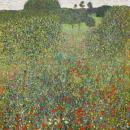
POLACCO / POLISH [2] - Szymon Gruda
Versione polacca cantabile di Szymon Gruda segnalatami da Kaśka Janiak (very cool) [KW]
da questa pagina
Versione polacca cantabile di Szymon Gruda segnalatami da Kaśka Janiak (very cool) [KW]
da questa pagina
PIERO
(continua)
(continua)
inviata da Kaśka Janiak tramite Krzysiek Wrona 10/2/2016 - 19:30
Mourir pour des idées

Dall'album "Suppliche e celebrazioni" (2008).
L'animazione è di Dario Faggella (http://www.faggella.it)
MORIR PER UN'IDEA
(continua)
(continua)
inviata da Riccardo Venturi 10/2/2016 - 18:30
Who's Gonna Investigate the Man Who Investigates Me?
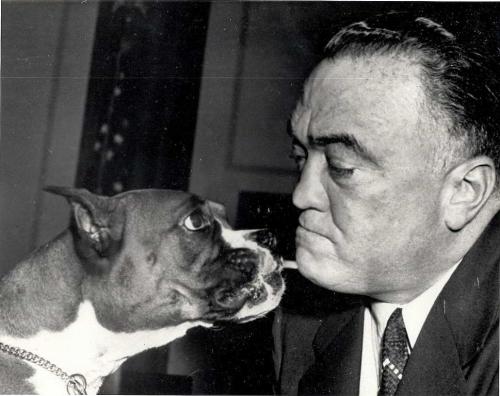
[1939]
Parole e musica di Harold Rome
Testo trovato su Labor Arts
Harold Rome (1908-1993) è stato un famoso compositore e autore americano di musical. Ebbe un grande successo a Broadway a cominciare dal secondo dopoguerra, ma già prima era diventato noto per aver realizzato la rivista musicale “Pins and Needles”, commissionatagli dal sindacato International Ladies' Garment Workers' Union (ILGWU), con le stesse lavoratrici e lavoratori come protagonisti, “the only hit ever produced by a labor union, and the only time when a group of unknown non-professionals brought a successful musical to Broadway” (John Kenrick)
Dopo Gee, but I’d Like to Be a G-Man, ancora una canzone di Rome diretta contro John Edgar Hoover, per 48 anni consecutivi direttore dell’FBI, mezzo secolo di potere totale ed incondizionato interrotto soltanto dalla sua morte (naturale)… Un vero sceriffo, un G-man, che usò il pugno di ferro, e parecchio piombo, non solo contro gangster e mafia ma pure contro comunisti, radicali ed oppositori politici in genere…
Parole e musica di Harold Rome
Testo trovato su Labor Arts
Harold Rome (1908-1993) è stato un famoso compositore e autore americano di musical. Ebbe un grande successo a Broadway a cominciare dal secondo dopoguerra, ma già prima era diventato noto per aver realizzato la rivista musicale “Pins and Needles”, commissionatagli dal sindacato International Ladies' Garment Workers' Union (ILGWU), con le stesse lavoratrici e lavoratori come protagonisti, “the only hit ever produced by a labor union, and the only time when a group of unknown non-professionals brought a successful musical to Broadway” (John Kenrick)
Dopo Gee, but I’d Like to Be a G-Man, ancora una canzone di Rome diretta contro John Edgar Hoover, per 48 anni consecutivi direttore dell’FBI, mezzo secolo di potere totale ed incondizionato interrotto soltanto dalla sua morte (naturale)… Un vero sceriffo, un G-man, che usò il pugno di ferro, e parecchio piombo, non solo contro gangster e mafia ma pure contro comunisti, radicali ed oppositori politici in genere…
I’ve got a problem that is bothering me.
(continua)
(continua)
inviata da Bernart Bartleby 10/2/2016 - 14:00
Gee, but I’d Like to Be a G-Man

[1938]
Parole e musica di Harold Rome
Credo che però la melodia riprenda, parodisticamente, quella di “Gee, But I'd Like to Make You Happy” (di Larry Shay, Ward & Montgomery), successo del 1930.
Testo trovato su Labor Arts
Harold Rome (1908-1993) è stato un famoso compositore e autore americano di musical. Ebbe un grande successo a Broadway a cominciare dal secondo dopoguerra, ma già prima era diventato noto per aver realizzato la rivista musicale “Pins and Needles”, commissionatagli dal sindacato International Ladies' Garment Workers' Union (ILGWU), con le stesse lavoratrici e lavoratori come protagonisti, “the only hit ever produced by a labor union, and the only time when a group of unknown non-professionals brought a successful musical to Broadway” (John Kenrick)
Questa canzone di Harold Rome è è diretta contro John Edgar Hoover che all’epoca era già direttore dell’FBI da oltre... (continua)
Parole e musica di Harold Rome
Credo che però la melodia riprenda, parodisticamente, quella di “Gee, But I'd Like to Make You Happy” (di Larry Shay, Ward & Montgomery), successo del 1930.
Testo trovato su Labor Arts
Harold Rome (1908-1993) è stato un famoso compositore e autore americano di musical. Ebbe un grande successo a Broadway a cominciare dal secondo dopoguerra, ma già prima era diventato noto per aver realizzato la rivista musicale “Pins and Needles”, commissionatagli dal sindacato International Ladies' Garment Workers' Union (ILGWU), con le stesse lavoratrici e lavoratori come protagonisti, “the only hit ever produced by a labor union, and the only time when a group of unknown non-professionals brought a successful musical to Broadway” (John Kenrick)
Questa canzone di Harold Rome è è diretta contro John Edgar Hoover che all’epoca era già direttore dell’FBI da oltre... (continua)
When I grow up, I don’t want to be a fireman.
(continua)
(continua)
inviata da Bernart Bartleby 10/2/2016 - 13:38
The Ballad of Morris Schappes
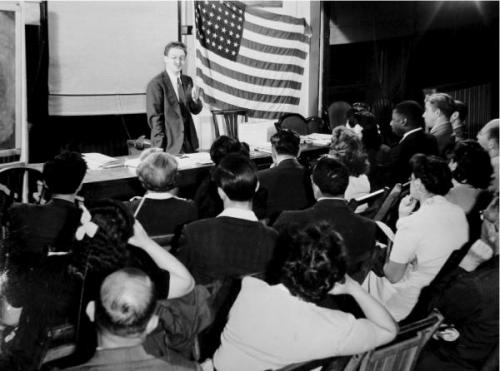
[1942]
Scritta da Norman Franklin (?) ed Henry Foner (1919-2017), sindacalista, militante per i diritti civili e contro la guerra in Vietnam.
Testo trovato su Labor Arts
Negli anni 40, giovane studente comunista, Henry Foner fu lui stesso vittima delle epurazioni nelle scuole newyorkesi stabilite dal Joint Legislative Committee to Investigate the Educational System, uno dei tanti comitati che si occupavano della “bonifica” dei comunisti negli apparati pubblici.
Canzone in onore di Morris U. Schappes (1907–2004, nato Moishe Shapshilevich, di origine ucraina), la più illustre ed irriducibile delle vittime del Joint Legislative Committee to Investigate the Educational System of the State of New York, il cosiddetto “Rapp-Coudert Committee”, uno dei comitati precursori della caccia alle streghe anticomunista che avrebbe visto il suo apice nei primi anni 50 con il senatore Joseph McCarthy.... (continua)
Scritta da Norman Franklin (?) ed Henry Foner (1919-2017), sindacalista, militante per i diritti civili e contro la guerra in Vietnam.
Testo trovato su Labor Arts
Negli anni 40, giovane studente comunista, Henry Foner fu lui stesso vittima delle epurazioni nelle scuole newyorkesi stabilite dal Joint Legislative Committee to Investigate the Educational System, uno dei tanti comitati che si occupavano della “bonifica” dei comunisti negli apparati pubblici.
Canzone in onore di Morris U. Schappes (1907–2004, nato Moishe Shapshilevich, di origine ucraina), la più illustre ed irriducibile delle vittime del Joint Legislative Committee to Investigate the Educational System of the State of New York, il cosiddetto “Rapp-Coudert Committee”, uno dei comitati precursori della caccia alle streghe anticomunista che avrebbe visto il suo apice nei primi anni 50 con il senatore Joseph McCarthy.... (continua)
When I put on long britches,
(continua)
(continua)
inviata da Bernart Bartleby 10/2/2016 - 12:50
Malèvera

2011
La Stessa Barca
Per Stefano Cucchi
La Stessa Barca
Per Stefano Cucchi
Nun s'adda sape' comme è fernuto chillu llà
(continua)
(continua)
inviata da dq82 10/2/2016 - 12:12
La justice
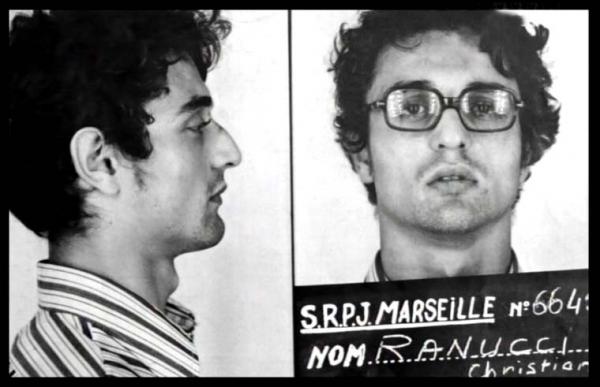
Alerta antifachista
[1973]
Texte remanié en 1980. A la mémoire de Christian Ranucci.
Dans un pays comme la France, l'accusé n'a pas toujours le bénéfice du doute. Ranucci a été l'avant-dernier condamné à mort et éxécuté de France. Il a été guillotiné à la prison des Baumettes à Marseille le 28 juillet 1976.La peine de mort a été abolie le 18 septembre 1981.
[1973]
Texte remanié en 1980. A la mémoire de Christian Ranucci.
Dans un pays comme la France, l'accusé n'a pas toujours le bénéfice du doute. Ranucci a été l'avant-dernier condamné à mort et éxécuté de France. Il a été guillotiné à la prison des Baumettes à Marseille le 28 juillet 1976.La peine de mort a été abolie le 18 septembre 1981.
C’est une vieille fille usée par de nombreux liftings
(continua)
(continua)
inviata da dq82 10/2/2016 - 10:12
Percorsi:
Pena di morte: omicidio del potere
La Déchirure

Alerta antifachista
En 1962 j'ai 16 ans, j'écris et je chante mes premières chansons. "La déchirure" est un texte sur la guerre d'Algérie. Je l'ai interprété à Lezoux (Puy de Dome) à l'occasion de la fête du village, le public l'a copieusement sifflé en geulant "Algérie Française" et à la fin du morceau certains ont entonné "La Marseillaise". Un peu plus tard trois individus me sont tombés dessus pour me corriger, des copains m'ont défendu et je m'en suis plustôt bien sorti. 41 ans plus tard je n'enlève pas une virgule à ce que j'ai écris à l'époque et comme beaucoup d'autres camarades, j'attends que la France reconnaisse le génocide des Algériens.
En octobre 61 à Paris une manifestation des opposants à la guerre se termine par une repression policière sanglante, des dizaine de cadavres d'Algériens sont repêchés dans la Seine.Le préfet de police de l'époque s'appelait Maurice Papon. Cet... (continua)
En 1962 j'ai 16 ans, j'écris et je chante mes premières chansons. "La déchirure" est un texte sur la guerre d'Algérie. Je l'ai interprété à Lezoux (Puy de Dome) à l'occasion de la fête du village, le public l'a copieusement sifflé en geulant "Algérie Française" et à la fin du morceau certains ont entonné "La Marseillaise". Un peu plus tard trois individus me sont tombés dessus pour me corriger, des copains m'ont défendu et je m'en suis plustôt bien sorti. 41 ans plus tard je n'enlève pas une virgule à ce que j'ai écris à l'époque et comme beaucoup d'autres camarades, j'attends que la France reconnaisse le génocide des Algériens.
En octobre 61 à Paris une manifestation des opposants à la guerre se termine par une repression policière sanglante, des dizaine de cadavres d'Algériens sont repêchés dans la Seine.Le préfet de police de l'époque s'appelait Maurice Papon. Cet... (continua)
Certains Français en Algérie
(continua)
(continua)
inviata da dq82 10/2/2016 - 10:10
Percorsi:
La guerra d'Algeria
Fabrizio De André: Monti di Mola

Dal blog Fabrizio De André in English
"Monti di Mola" takes place on the Emerald Coast of Sardinia. De André called the song a metaphor showing the impossibility of reaching one's dreams in a society that has become bureaucratic and standardized, where the imagination of the culture can't expand to accept "impossible dreams" that are on the verge of coming true. The song is in the Gallurese dialect.
It took six years after the tremendous success of Creuza de mä for De André to release his next studio album, Le nuvole (The Clouds). In the meantime, he and Mauro Pagani explored several avenues of musical collaboration which did not come to fruition. De André had this to say about Le nuvole: "I realized that people are just pissed off, and since Le nuvole is a symbol of this dissatisfaction, the transference, the intermediary for this general discontent, I would say that the album was welcomed... (continua)
"Monti di Mola" takes place on the Emerald Coast of Sardinia. De André called the song a metaphor showing the impossibility of reaching one's dreams in a society that has become bureaucratic and standardized, where the imagination of the culture can't expand to accept "impossible dreams" that are on the verge of coming true. The song is in the Gallurese dialect.
It took six years after the tremendous success of Creuza de mä for De André to release his next studio album, Le nuvole (The Clouds). In the meantime, he and Mauro Pagani explored several avenues of musical collaboration which did not come to fruition. De André had this to say about Le nuvole: "I realized that people are just pissed off, and since Le nuvole is a symbol of this dissatisfaction, the transference, the intermediary for this general discontent, I would say that the album was welcomed... (continua)
MOUNTAINS OF MOLA
(continua)
(continua)
inviata da Riccardo Venturi 10/2/2016 - 09:55
The General and the Goats
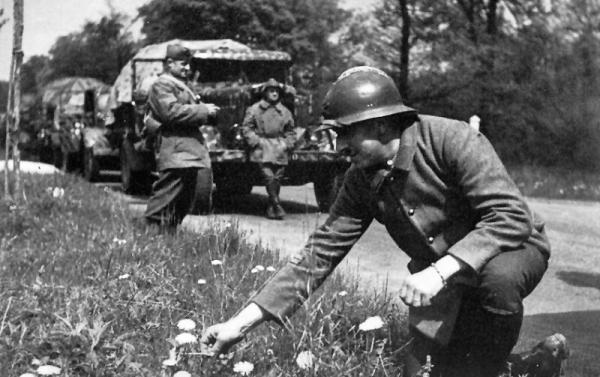
[1939 o 1940]
Parole di Mike Stratton
Musica di Saul Aarons
Musica di Mike Stratton
Testo trovato su Labor Arts
Pochissime le notizie reperibilin Rete sul conto di questo duo composto da Saul Aarons e Mike Stratton. Furono di certo, seppur marginalmente, due songwriter e a New York fecero parte dell’organizzazione “People’s Songs”, lì fondata nel 1945 da Pete Seeger, Alan Lomax e Lee Hays, nata per promuovere le canzoni provenienti dal movimento operaio americano.
Saul Aarons e Mike Stratton non sono passati alla storia perché le loro canzoni erano lunghe e difficili, più adatte al teatro musicale o al cabaret… E poi mica tutti possono diventare dei Pete Seeger! Comunque il buon vecchio Pete di certo si avvalse del lavoro di tanti come Aarons e Stratton.
Questa canzone fu scritta mentre in Europa si “combatteva” la cosiddetta “Phoney War” (la “Strana Guerra”, o in francese “drôle... (continua)
Parole di Mike Stratton
Musica di Saul Aarons
Musica di Mike Stratton
Testo trovato su Labor Arts
Pochissime le notizie reperibilin Rete sul conto di questo duo composto da Saul Aarons e Mike Stratton. Furono di certo, seppur marginalmente, due songwriter e a New York fecero parte dell’organizzazione “People’s Songs”, lì fondata nel 1945 da Pete Seeger, Alan Lomax e Lee Hays, nata per promuovere le canzoni provenienti dal movimento operaio americano.
Saul Aarons e Mike Stratton non sono passati alla storia perché le loro canzoni erano lunghe e difficili, più adatte al teatro musicale o al cabaret… E poi mica tutti possono diventare dei Pete Seeger! Comunque il buon vecchio Pete di certo si avvalse del lavoro di tanti come Aarons e Stratton.
Questa canzone fu scritta mentre in Europa si “combatteva” la cosiddetta “Phoney War” (la “Strana Guerra”, o in francese “drôle... (continua)
[Narrator]
(continua)
(continua)
inviata da Bernart Bartleby 10/2/2016 - 09:49
Percorsi:
Guerra agli animali
Blu

di I. Fornaciari – B. Dati – D. Calvetti – B. Dati – M. Fontana
Ed. Warner Chappell Music Italiana/La Ripa/Zucchero & Fornaciari Music – Milano – San Gimignano (SI) – Marina di Carrara (MS)
Direttamente da Sanremo, tra gli autori B.Dati, lo stesso di Cirano di Guccini, una onesta canzone sui viaggi della speranza sul mare, in quella specie di luna park del cuore-amore che è il festival di Sanremo.
Ed. Warner Chappell Music Italiana/La Ripa/Zucchero & Fornaciari Music – Milano – San Gimignano (SI) – Marina di Carrara (MS)
Direttamente da Sanremo, tra gli autori B.Dati, lo stesso di Cirano di Guccini, una onesta canzone sui viaggi della speranza sul mare, in quella specie di luna park del cuore-amore che è il festival di Sanremo.
C’è una donna in riva al mare
(continua)
(continua)
inviata da dq82 10/2/2016 - 09:43
Sidùn
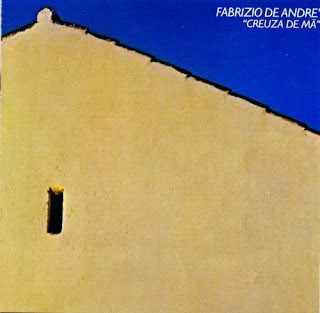
Dal blog Fabrizio De André in English
"Sidon is a coastal city halfway between the southern border of Lebanon and Beirut. At the time this song was written, Lebanon was in the midst of a civil war that began in 1975 and that saw Israel invade and push towards Beirut in 1982. In De André's words, "Sidon is the Lebanese city that gave us, beyond the letters of our alphabet, even the invention of glass. I imagined myself, after the sudden attack of General Sharon in 1982, as a middle-aged Arab man, dirty, desperate, certainly poor, holding in his arms his own son, chewed up by the steel tracks of an armored tank. . . . The 'little death' alluded to at the end of this song should not be confused with the death of a little boy. Rather it is understood metaphorically as the end of a civilization and culture of a small country: Lebanon, Phoenicia, which at its discretion was perhaps the greatest... (continua)
"Sidon is a coastal city halfway between the southern border of Lebanon and Beirut. At the time this song was written, Lebanon was in the midst of a civil war that began in 1975 and that saw Israel invade and push towards Beirut in 1982. In De André's words, "Sidon is the Lebanese city that gave us, beyond the letters of our alphabet, even the invention of glass. I imagined myself, after the sudden attack of General Sharon in 1982, as a middle-aged Arab man, dirty, desperate, certainly poor, holding in his arms his own son, chewed up by the steel tracks of an armored tank. . . . The 'little death' alluded to at the end of this song should not be confused with the death of a little boy. Rather it is understood metaphorically as the end of a civilization and culture of a small country: Lebanon, Phoenicia, which at its discretion was perhaps the greatest... (continua)
SIDON
(continua)
(continua)
inviata da Riccardo Venturi 10/2/2016 - 05:58
Nella mia ora di libertà

Dal blog Fabrizio De André in English
"In the final song, the worker realizes that individual protest has little chance of having results against power, and that to change things it's necessary to join with others and to act en masse, as did the students of May 1968 in France." - Dennis Criteser
IN MY HOUR OF FREEDOM
(continua)
(continua)
inviata da Riccardo Venturi 10/2/2016 - 05:23
Ballata degli impiccati

Dal blog Fabrizio De André in English
"La ballata degli impiccati" is closely related to a 1462 poem, "Ballade des pendus" by François Villon, written in prison while waiting for his execution. Whereas Villon asks for pity for the condemned, the lyrics of De Andrè and Bentivoglio express rancor for those who judged, for those who buried, even for those who remembered, all of whom will inevitably also meet their ends.
Tutti morimmo a stento, released in 1968, was one of the first concept albums in Italy. In De Andrè's own words, the album "speaks of death, not of bubble gum death with little bones, but of psychological death, moral death, mental death, that a normal person can encounter during his lifetime." After the success of Volume I, De André was provided for this next album a cutting edge recording studio complete with an 80-member orchestra, directed by Gian Piero Reverberi, and a... (continua)
"La ballata degli impiccati" is closely related to a 1462 poem, "Ballade des pendus" by François Villon, written in prison while waiting for his execution. Whereas Villon asks for pity for the condemned, the lyrics of De Andrè and Bentivoglio express rancor for those who judged, for those who buried, even for those who remembered, all of whom will inevitably also meet their ends.
Tutti morimmo a stento, released in 1968, was one of the first concept albums in Italy. In De Andrè's own words, the album "speaks of death, not of bubble gum death with little bones, but of psychological death, moral death, mental death, that a normal person can encounter during his lifetime." After the success of Volume I, De André was provided for this next album a cutting edge recording studio complete with an 80-member orchestra, directed by Gian Piero Reverberi, and a... (continua)
BALLAD OF THE HANGED MEN
(continua)
(continua)
inviata da Riccardo Venturi 9/2/2016 - 21:49
Fabrizio De André: Amico fragile
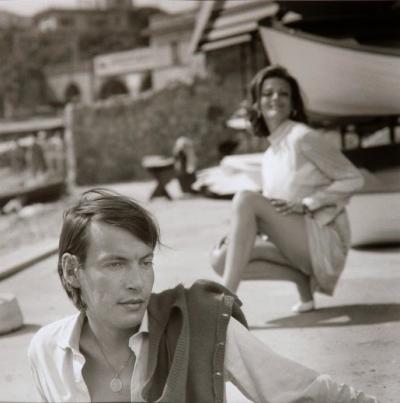
Dal blog Fabrizio De André in English
"De André wrote "Amico fragile" in a drunken rage after attending a party of rich Italians vacationing on Sardinia. They were only interested in having him play guitar and sing his songs, whereas De André wanted to engage people in discussions about events going on in Italy. He became ever more frustrated and inebriated with the shallowness of the evening, returning home to stay up all night and produce this "stream of semi-consciousness" rant. The song was a staple in his live shows and was one of De André's favorites." - Dennis Criteser
"De André wrote "Amico fragile" in a drunken rage after attending a party of rich Italians vacationing on Sardinia. They were only interested in having him play guitar and sing his songs, whereas De André wanted to engage people in discussions about events going on in Italy. He became ever more frustrated and inebriated with the shallowness of the evening, returning home to stay up all night and produce this "stream of semi-consciousness" rant. The song was a staple in his live shows and was one of De André's favorites." - Dennis Criteser
FRAGILE FRIEND
(continua)
(continua)
inviata da Riccardo Venturi 9/2/2016 - 20:47
Andrea
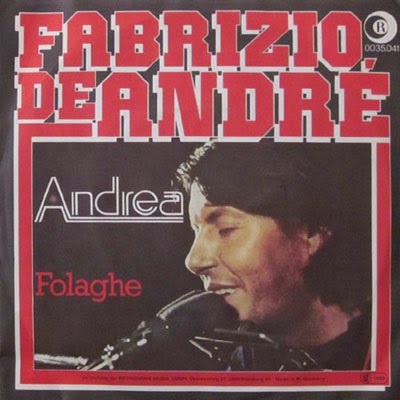
Dal blog Fabrizio De André in English
"Andrea" is both an anti-war song and a statement of solidarity with and acceptance of gays, as the song is about the love between two men (Andrea is a man's name in Italian). The setting for the song is World War I, which can be deduced because intense battles occurred on the ground in the mountains of Trent during WWI, whereas in WWII Trent suffered bombing from the air by the Germans toward the end of the war.
Rimini grew out of De André's disappointments with the political events of the previous couple of years. In close collaboration with Massimo Bubola, a young 24-year-old who had just released his first album, De André explored several social and political themes, including abortion, homosexuality, and how the petty bourgeois attempted to move into the ranks of the powerful and rise above the political and social turmoil of the times. The music... (continua)
"Andrea" is both an anti-war song and a statement of solidarity with and acceptance of gays, as the song is about the love between two men (Andrea is a man's name in Italian). The setting for the song is World War I, which can be deduced because intense battles occurred on the ground in the mountains of Trent during WWI, whereas in WWII Trent suffered bombing from the air by the Germans toward the end of the war.
Rimini grew out of De André's disappointments with the political events of the previous couple of years. In close collaboration with Massimo Bubola, a young 24-year-old who had just released his first album, De André explored several social and political themes, including abortion, homosexuality, and how the petty bourgeois attempted to move into the ranks of the powerful and rise above the political and social turmoil of the times. The music... (continua)
ANDREA
(continua)
(continua)
inviata da Riccardo Venturi 9/2/2016 - 20:36
Canzone per l’estate
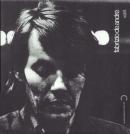
Dal blog Fabrizio De André in English
"The music of "Canzone per l'estate" is entirely De Gregori's, while the lyrics were co-written. De André described the song as somewhat autobiographical, describing the tension between the bourgeois life he grew up in and lived much of his life in, and his attraction to anarchism and to society's outcasts who seemed more genuine and alive than the upper classes. Indeed the song describes well the soul-sapping nature of a comfortable, prosperous life that takes one away from vitality and even political engagement ("your eyes closed to the people")." - Dennis Criteser
SONG FOR THE SUMMER
(continua)
(continua)
inviata da Riccardo Venturi 9/2/2016 - 20:25
La cattiva strada

Dal blog Fabrizio De André in English
"Literally, "cattiva strada" means "bad road." But in a moral sense, if you're straying down the wrong path, going down a slippery slope or leading someone astray, you're on a "cattiva strada" and more than a paving crew will be needed. Author and De André expert Cesare Romana observed the following about "La cattiva strada": "The song is among the most illustrative of the philosophy of a great moralist disguised as an 'immoralist.' The bad road represents a pirate ethic, and also the free port where the powers-that-be don't come. Thus it comes to be defined as bad, yet holding these mainstream powers at a distance endows a force most subversive and revolutionary that can be placed at our disposition: love. The fact is that De André never moved far from the bad road. He continued to think that the humanity, love and dignity of man resided there, and... (continua)
"Literally, "cattiva strada" means "bad road." But in a moral sense, if you're straying down the wrong path, going down a slippery slope or leading someone astray, you're on a "cattiva strada" and more than a paving crew will be needed. Author and De André expert Cesare Romana observed the following about "La cattiva strada": "The song is among the most illustrative of the philosophy of a great moralist disguised as an 'immoralist.' The bad road represents a pirate ethic, and also the free port where the powers-that-be don't come. Thus it comes to be defined as bad, yet holding these mainstream powers at a distance endows a force most subversive and revolutionary that can be placed at our disposition: love. The fact is that De André never moved far from the bad road. He continued to think that the humanity, love and dignity of man resided there, and... (continua)
THE ERRANT WAY
(continua)
(continua)
inviata da Riccardo Venturi 9/2/2016 - 18:41
Capitalistic Boss
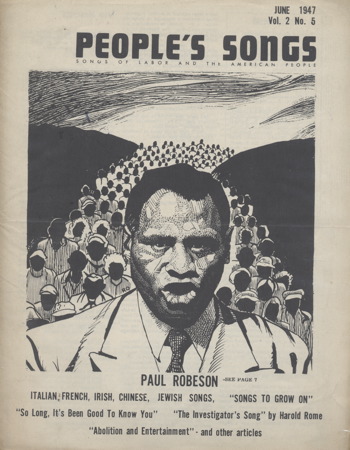
[1937 o 1941]
Parole di Saul Aarons
Musica di Mike Stratton
Testo trovato su Labor Arts
Canzone inclusa nella raccolta “Songs For Political Action - Folk Music And The American Left 1926 – 1953” (1996)
Originariamente pubblicato sul Volume III (nn. 6 e 7, luglio/agosto 1948) del “People's Song Bulletin”
Non ci sono molto notizie in Rete sull’autore di questa allegra e sarcastica canzoncina, dotata di un umorismo marcatamente “yiddish”… Mettendo insieme alcuni frammenti, Saul Aarons deve essere stato, seppur marginalmente, un songwriter che a New York fece parte dell’organizzazione “People’s Songs”, lì fondata nel 1945 da Pete Seeger, Alan Lomax e Lee Hays, nata per promuovere le canzoni provenienti dal movimento operaio americano.
Sono un boss capitalista… non sono cattivo, è che mi dipingono così… E’ vero, a volte mi comporto male ma non so spiegarmi il perché, c’è qualcosa che non va nel mio cervello… Sono malato di “capitalistite”!...
Parole di Saul Aarons
Musica di Mike Stratton
Testo trovato su Labor Arts
Canzone inclusa nella raccolta “Songs For Political Action - Folk Music And The American Left 1926 – 1953” (1996)
Originariamente pubblicato sul Volume III (nn. 6 e 7, luglio/agosto 1948) del “People's Song Bulletin”
Non ci sono molto notizie in Rete sull’autore di questa allegra e sarcastica canzoncina, dotata di un umorismo marcatamente “yiddish”… Mettendo insieme alcuni frammenti, Saul Aarons deve essere stato, seppur marginalmente, un songwriter che a New York fece parte dell’organizzazione “People’s Songs”, lì fondata nel 1945 da Pete Seeger, Alan Lomax e Lee Hays, nata per promuovere le canzoni provenienti dal movimento operaio americano.
Sono un boss capitalista… non sono cattivo, è che mi dipingono così… E’ vero, a volte mi comporto male ma non so spiegarmi il perché, c’è qualcosa che non va nel mio cervello… Sono malato di “capitalistite”!...
I'm the much-maligned capitalistic boss
(continua)
(continua)
inviata da Bernart Bartleby 9/2/2016 - 13:47
Spring Song
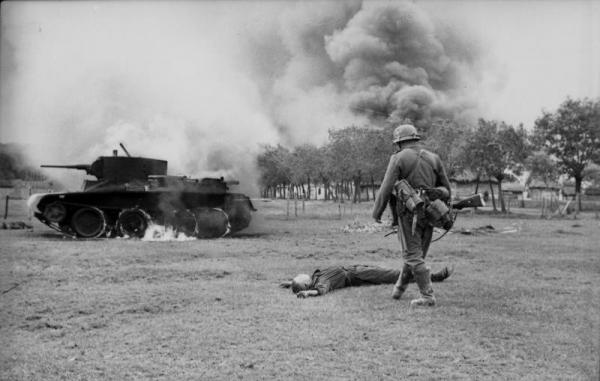
[1941]
Versi di Harry Schachter
Musica di Earl Robinson
Trovo il brano in un paio di compilation, quella proveniente dalla DDR intitolata “Das Andere Amerika” (1966) e la più recente “Songs For Political Action - Folk Music And The American Left 1926 – 1953” (sempre tedesca ma del 1996)
Sicuramente una delle canzoni contro la guerra e pacifiste più sfigate della Storia.
Paul Robeson la incise nel maggio del 1941… Il 22 giugno Hitler invase l’Unione Sovietica… Il 7 luglio un contingente americano sbarcava in Islanda a sostegno delle truppe britanniche, primo assaggio del coinvolgimento degli Stati Uniti nel conflitto, formalizzato poi a dicembre dopo l’attacco giapponese a Pearl Harbor…
La “Canzone della Primavera” la cantarono veramente in pochi e per poco…
Versi di Harry Schachter
Musica di Earl Robinson
Trovo il brano in un paio di compilation, quella proveniente dalla DDR intitolata “Das Andere Amerika” (1966) e la più recente “Songs For Political Action - Folk Music And The American Left 1926 – 1953” (sempre tedesca ma del 1996)
Sicuramente una delle canzoni contro la guerra e pacifiste più sfigate della Storia.
Paul Robeson la incise nel maggio del 1941… Il 22 giugno Hitler invase l’Unione Sovietica… Il 7 luglio un contingente americano sbarcava in Islanda a sostegno delle truppe britanniche, primo assaggio del coinvolgimento degli Stati Uniti nel conflitto, formalizzato poi a dicembre dopo l’attacco giapponese a Pearl Harbor…
La “Canzone della Primavera” la cantarono veramente in pochi e per poco…
Oh, I wonder will we be at war this spring.
(continua)
(continua)
inviata da Bernart Bartleby 9/2/2016 - 11:37
The Strange Funeral in Braddock
[1925]
Versi di Itzok Isaac Granich, in arte Michael "Mike" Gold (1894-1967), ebreo americano di origine rumena, scrittore, critico letterario, militante comunista
Musica di Elie Siegmeister (1909-1991), compositore ed autore
Nel 1936 il brano fu inciso da Mordecai Baumann (1912-2007), baritono newyorkese
Testo trovato qui
A Braddock, periferia di Pittsburgh, Pennsylvania, nel 1873 fu impiantato l’“Edgar Thomson Steel Works”, uno dei primi stabilimenti per la produzione dell’acciaio ad usare altiforni per il cosiddetto processo Bessemer, innovativi per l’epoca. La fabbrica richiamò un gran numero di immigrati, soprattutto da Croazia, Slovenia e Ungheria. La fortuna di Braddock, fondata sulla “monocoltura” dell’acciaio, ebbe tragicamente termine tra gli anni 70 e gli 80 del secolo scorso. La crisi produttiva ed occupazionale, unitamente alla diffusione massiccia di crack e cocaina, distrussero... (continua)
Versi di Itzok Isaac Granich, in arte Michael "Mike" Gold (1894-1967), ebreo americano di origine rumena, scrittore, critico letterario, militante comunista
Musica di Elie Siegmeister (1909-1991), compositore ed autore
Nel 1936 il brano fu inciso da Mordecai Baumann (1912-2007), baritono newyorkese
Testo trovato qui
A Braddock, periferia di Pittsburgh, Pennsylvania, nel 1873 fu impiantato l’“Edgar Thomson Steel Works”, uno dei primi stabilimenti per la produzione dell’acciaio ad usare altiforni per il cosiddetto processo Bessemer, innovativi per l’epoca. La fabbrica richiamò un gran numero di immigrati, soprattutto da Croazia, Slovenia e Ungheria. La fortuna di Braddock, fondata sulla “monocoltura” dell’acciaio, ebbe tragicamente termine tra gli anni 70 e gli 80 del secolo scorso. La crisi produttiva ed occupazionale, unitamente alla diffusione massiccia di crack e cocaina, distrussero... (continua)
Listen to the drums of a strange American funeral.
(continua)
(continua)
inviata da Bernart Bartleby 9/2/2016 - 10:24
Canzone per l’estate

In realtà, Fabrizio De André descrisse questa canzone (il cui testo è, sarà bene ricordarlo, stato scritto assieme a Francesco De Gregori) come in un certo qual modo autobiografica. Parla, secondo De André, della tensione tra la vita borghese in cui era cresciuto e aveva vissuto parte della sua vita, e l’attrazione per l’Anarchia e per gli “ultimi” della società, che gli sembravano molto più vivi e genuini delle classi superiori. Fatta salva l’oscurità del testo, caratteristica del resto saliente di quell’album “degregoriano”, si avverte comunque abbastanza bene l’attacco alla vita borghese, confortevole e prospera, che distoglie l’essere umano dalla vitalità e dall’impegno politico (gli “occhi chiusi sulla gente”). Per quel che mi riguarda, l’ho sempre avvertita molto come una canzone sulla dissoluzione della famiglia borghese.
Riccardo Venturi 9/2/2016 - 08:06
Il testamento di Tito

Dal blog Fabrizio De André in English
"Il testamento di Tito" takes us into the Old Testament to the Ten Commandments. Tito, the so-called good thief from the Syriac Infancy Gospel, recounts how he violated each of the commandments (except "Thou shalt not kill"), offering critiques along the way. De André considered this song one of his very best for its hard-hitting social impact." - Dennis Criteser
TITO'S WILL
(continua)
(continua)
inviata da Riccardo Venturi 9/2/2016 - 07:42
Il Pescatore

Dal blog Fabrizio De André in English
"Il pescatore" was released in 1970 as a single. One of De André's most popular songs, it never appeared on a studio album, but can be heard on several live albums." - Dennis Criteser
THE FISHERMAN
(continua)
(continua)
inviata da Riccardo Venturi 9/2/2016 - 07:27
La domenica delle salme
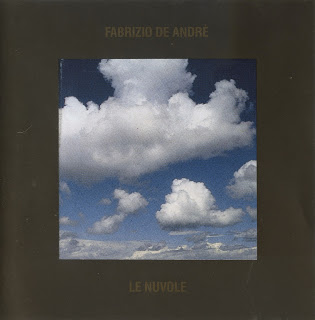
Dal blog Fabrizio De André in English
""La domenica delle salme" is one of De André's most political songs, full of references not easily discernible. The second verse refers to a Milan retirement home resident who was discovered dead under mysterious circumstances. The third verse may refer to a series of murders by a neo-Nazi duo who tagged themselves as Ludwig. The fourth verse refers to the Polish refugees who came to Italy after the fall of the Soviet Union and who worked the streets cleaning car windows (i.e., redoing the makeup of the capitalists heading off to the beach). The fifth verse refers to businessmen looking to profit from the opening of the countries of the former Soviet Union, and the sixth verse refers to the neo-Nazism that subsequently raised its head. The seventh verse may refer to the need for another visible symbol for members of the left and the right to use to... (continua)
""La domenica delle salme" is one of De André's most political songs, full of references not easily discernible. The second verse refers to a Milan retirement home resident who was discovered dead under mysterious circumstances. The third verse may refer to a series of murders by a neo-Nazi duo who tagged themselves as Ludwig. The fourth verse refers to the Polish refugees who came to Italy after the fall of the Soviet Union and who worked the streets cleaning car windows (i.e., redoing the makeup of the capitalists heading off to the beach). The fifth verse refers to businessmen looking to profit from the opening of the countries of the former Soviet Union, and the sixth verse refers to the neo-Nazism that subsequently raised its head. The seventh verse may refer to the need for another visible symbol for members of the left and the right to use to... (continua)
PSALM SUNDAY
(continua)
(continua)
inviata da Riccardo Venturi 9/2/2016 - 07:07
Carlo Martello torna [o: ritorna] dalla battaglia di Poitiers; o Carlo Martello
![Carlo Martello torna <i>[o: ritorna]</i> dalla battaglia di Poitiers; <i>o</i> Carlo Martello](img/thumb/c1095_130x140.jpeg?1328357200)
Dal blog Fabrizio De André in English
"This song was released in 1963 as the B side of a 45 with "Il fannullone" as the A-side. The text was written by a friend from childhood, Paolo Villagio, and the music is by De Andrè. The Battle of Poitiers occurred in 732, a battle between the Franks and the Moors in what is now northern France. The song is in the style of popular French pastourelles sung by medieval troubadours about encounters between knights and country girls. In 1965 a complaint was brought against De Andrè and his label Karim for obscene content in the lyrics. The case was settled in De Andrè's favor in 1968. The Italian in this song is an old style, and Riccardo Venturi has done a nice translation into a similarly "olde" style of English." - Dennis Criteser
CHARLES MARTEL RETURNS FROM THE BATTLE OF POITIERS
(continua)
(continua)
inviata da Riccardo Venturi 9/2/2016 - 06:56
Il fannullone
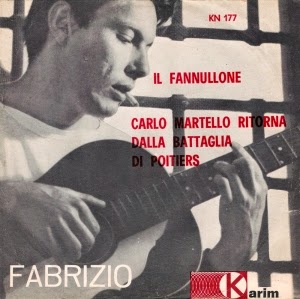
Dal blog Fabrizio De André in English
"Il fannul[l]one" was the A-side of De Andrè's third single on Karim, released in 1963. It was co-written with Paolo Villaggio, a childhood friend. There are several strains in this early song that will surface regularly in later songs: going against the grain of mainstream society, a sense of irony towards so-called respectable folk ("la gente per bene"), and an irreverent and playful attitude. The song no doubt sprang from the anti-conformist lifestyles of the two young authors. Riccardo Venturi called this song "deliciously revolutionary and subversive" and described it as a "hymn to doing nothing," where to do nothing is to live life truly, not allowing a dehumanized corporate complex to take it away from you." - Dennis Criteser
"Il fannul[l]one" was the A-side of De Andrè's third single on Karim, released in 1963. It was co-written with Paolo Villaggio, a childhood friend. There are several strains in this early song that will surface regularly in later songs: going against the grain of mainstream society, a sense of irony towards so-called respectable folk ("la gente per bene"), and an irreverent and playful attitude. The song no doubt sprang from the anti-conformist lifestyles of the two young authors. Riccardo Venturi called this song "deliciously revolutionary and subversive" and described it as a "hymn to doing nothing," where to do nothing is to live life truly, not allowing a dehumanized corporate complex to take it away from you." - Dennis Criteser
THE SLOUCH
(continua)
(continua)
inviata da Riccardo Venturi 9/2/2016 - 06:20
Cotton Fields
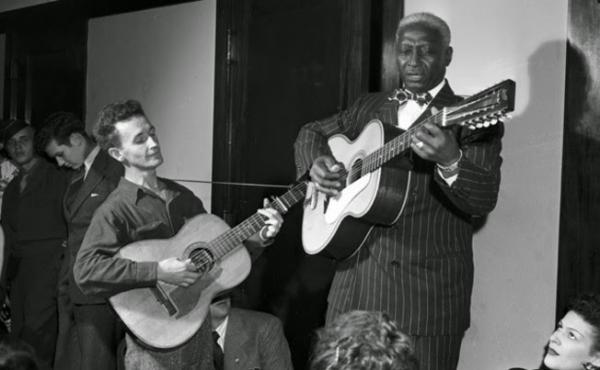
[1940]
Parole e musica di Huddie Ledbetter, detto Leadbelly, che incise questo brano autobiografico nel 1940. Però i primi ad includere la canzone in album e a renderla uno standard, non solo della musica nera (dato anche il suo ritmo originario, comunque “country”) furono Odetta (“The Tin Angel”, 1954, con Lawrence B. Mohr) ed Harry Belafonte (“Belafonte Sings the Blues”, 1958).
Poi le moltissime cover, fra cui spiccano quelle dei Beach Boys e dei Creedence Clearwater Revival, nonchè quelle dei soliti “saccheggiatori” Johnny Cash ed Elvis Presley.
Propongo questo brano perchè, al di là del suo ritmo scanzonato, racconta della durezza della vita dei neri nel profondo sud degli USA alla fine dell’800, quando Leadbelly era un bimbo. I campi di cotone a perdita d’occhio erano il solo paesaggio, che la raccolta andasse bene e il prezioso vegetale non marcisse a causa del parassita “boll weevil”... (continua)
Parole e musica di Huddie Ledbetter, detto Leadbelly, che incise questo brano autobiografico nel 1940. Però i primi ad includere la canzone in album e a renderla uno standard, non solo della musica nera (dato anche il suo ritmo originario, comunque “country”) furono Odetta (“The Tin Angel”, 1954, con Lawrence B. Mohr) ed Harry Belafonte (“Belafonte Sings the Blues”, 1958).
Poi le moltissime cover, fra cui spiccano quelle dei Beach Boys e dei Creedence Clearwater Revival, nonchè quelle dei soliti “saccheggiatori” Johnny Cash ed Elvis Presley.
Propongo questo brano perchè, al di là del suo ritmo scanzonato, racconta della durezza della vita dei neri nel profondo sud degli USA alla fine dell’800, quando Leadbelly era un bimbo. I campi di cotone a perdita d’occhio erano il solo paesaggio, che la raccolta andasse bene e il prezioso vegetale non marcisse a causa del parassita “boll weevil”... (continua)
When I was a little baby
(continua)
(continua)
inviata da Bernart Bartleby 8/2/2016 - 22:03
Cent'anni
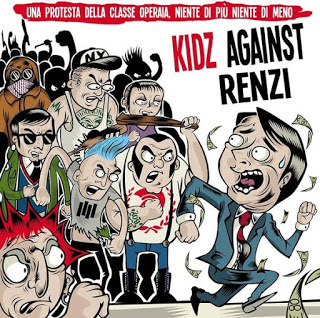
2016
Kidz against Renzi
Kidz against Renzi
Mi sono informato , c'e' un treno
(continua)
(continua)
inviata da dq82 8/2/2016 - 15:43
Told My Cap'n
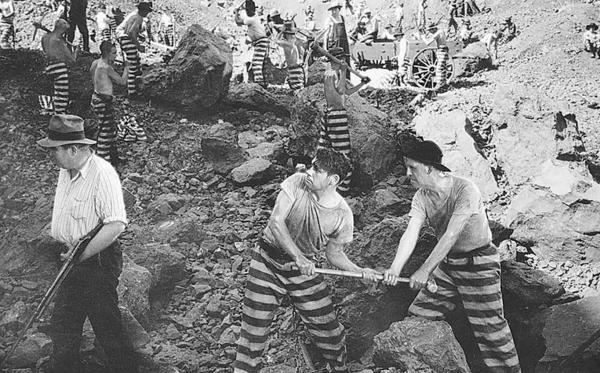
[1940]
Nel disco intitolato “Chain Gang”, con il gruppo dei Carolinians
"Columbia Records proudly presents what is perhaps the most genuine folk music of our times... Seven Negro laments of the chain gang sung by Joshua White and his Carolinians" (from liner notes)
Ancora una canzone sulle chain gang, le squadre di prigionieri alla catena, o work gang, sempre composte in gran parte da neri, data la loro altissima percentuale fra la popolazione carceraria.
Anche qui il captain (in altre canzoni è il walker) esercita il totale arbitrio e la più spietata violenza sui prigionieri, arrivando ad ucciderne uno a sangue freddo… Ma – come in Nine Foot Shovel – il carnefice ha le ore contate…
Senz’altro il testo non è farina del sacco di White ma deriva da canti dei detenuti nelle prison farms del Sud negli anni 20, come la Grade Song che trovo su Mudcat Café…
Nel disco intitolato “Chain Gang”, con il gruppo dei Carolinians
"Columbia Records proudly presents what is perhaps the most genuine folk music of our times... Seven Negro laments of the chain gang sung by Joshua White and his Carolinians" (from liner notes)
Ancora una canzone sulle chain gang, le squadre di prigionieri alla catena, o work gang, sempre composte in gran parte da neri, data la loro altissima percentuale fra la popolazione carceraria.
Anche qui il captain (in altre canzoni è il walker) esercita il totale arbitrio e la più spietata violenza sui prigionieri, arrivando ad ucciderne uno a sangue freddo… Ma – come in Nine Foot Shovel – il carnefice ha le ore contate…
Senz’altro il testo non è farina del sacco di White ma deriva da canti dei detenuti nelle prison farms del Sud negli anni 20, come la Grade Song che trovo su Mudcat Café…
Told my cap'n
(continua)
(continua)
inviata da Bernart Bartleby 8/2/2016 - 15:22
Il chimerico Morfeo
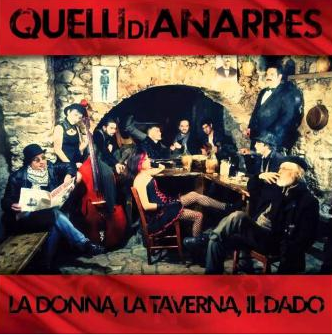
2015
La donna, la taverna, il dado
La donna, la taverna, il dado
Ho visto grandi delle multinazionali donare terre, costruzioni e anche denari
(continua)
(continua)
inviata da dq82 8/2/2016 - 15:18
Percorsi:
Disertori
Auf den Tod eines Fußballspielers
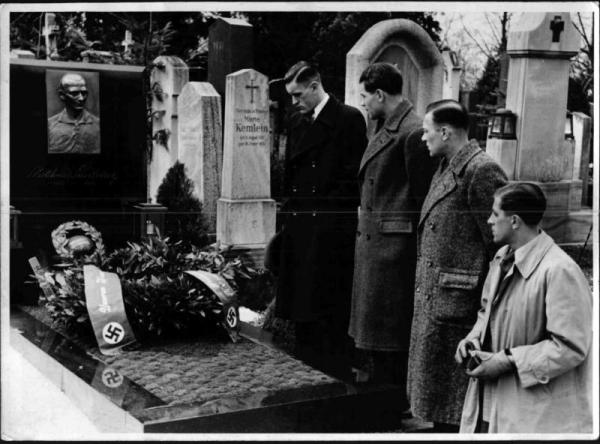
[1945]
Versi di Friedrich Torberg, pseudonimo di Friedrich Ephraim Kantor-Berg (1908-1979), scrittore, giornalista ebreo austriaco, di origine ceca.
Musicata da Christoph Holzhöfer
Approfondendo la vicenda di Johann Trollmann Rukelie, il grande pugile zingaro tedesco che si battè fino alla fine contro i nazisti, ho scoperto un’altra storia di un campione dello sport che non piegò la testa e che sfidò apertamente Hitler.
Questa poesia di Friedrich Torberg – che negli anni 40 finì esule negli USA dopo aver lungo vagato per l’Europa, braccato dai nazisti – è dedicata a Matthias Sindelar (1903-1939), il più forte calciatore austriaco di sempre, centrocampista ed attaccante del “Wunderteam”, la meravigliosa nazionale austriaca degli anni 30. Soprannominato “Der Papierene”, ossia “carta velina”, per via della sua figura sottile, o anche il “Mozart del pallone”, per l’eleganza del movimento... (continua)
Versi di Friedrich Torberg, pseudonimo di Friedrich Ephraim Kantor-Berg (1908-1979), scrittore, giornalista ebreo austriaco, di origine ceca.
Musicata da Christoph Holzhöfer
Approfondendo la vicenda di Johann Trollmann Rukelie, il grande pugile zingaro tedesco che si battè fino alla fine contro i nazisti, ho scoperto un’altra storia di un campione dello sport che non piegò la testa e che sfidò apertamente Hitler.
Questa poesia di Friedrich Torberg – che negli anni 40 finì esule negli USA dopo aver lungo vagato per l’Europa, braccato dai nazisti – è dedicata a Matthias Sindelar (1903-1939), il più forte calciatore austriaco di sempre, centrocampista ed attaccante del “Wunderteam”, la meravigliosa nazionale austriaca degli anni 30. Soprannominato “Der Papierene”, ossia “carta velina”, per via della sua figura sottile, o anche il “Mozart del pallone”, per l’eleganza del movimento... (continua)
Er war ein Kind aus Favoriten
(continua)
(continua)
inviata da Bernart Bartleby 8/2/2016 - 13:07
La Avenida de los Tilos

Non mi ero accorto che c'era già una canzone, contribuita pure di recente, sulla vicenda dei giovani rugbysti argentini, Ellos nos han separado...
Grazie DQ82!
Grazie DQ82!
Bernart Bartleby 8/2/2016 - 13:03
Bernardo l'Eremita
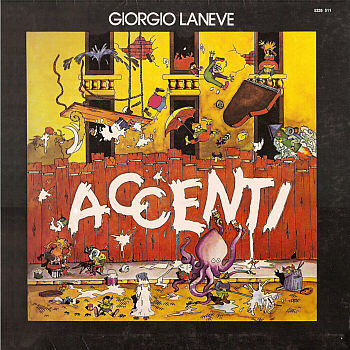
[1976]
Testo: Giorgio Laneve e Luciano Beretta
Musica: Giorgio Laneve e Giovanni Bobbio
Arrangiamenti e direzione: Giovanni Bobbio
Interpreti: Giorgio Laneve e coro Le Mele Verdi di Mitzi Amoroso
Anno di incisione: 1976
Pubblicazione: 33 giri e MC, Divergo, 1976
Accenti è il secondo LP delle Mele Verdi, inciso con Giorgio Laneve; pubblicato su 33 giri dalla Divergo, e su musicasseta (attualmente introvabile). La registrazione è avvenuta al Central Studio e allo Studio Trevisani di Milano ed è terminata l’11 novembre 1976. All'interno della copertina del 33 giri sono pubblicati i testi delle canzoni. Nel 1977 è uscito anche un singolo (45 giri) contenente due canzoni tratte dall'LP: Accenti e La girandola. Musicisti: Giovanni Bobbio (chitarra, basso, flauto, tastiere), Reddy Bobbio (tastiere); Giulio del santo (tastiere); Mario Lamberti (effetti sonori); Giorgio Laneve (chitarra);... (continua)
Testo: Giorgio Laneve e Luciano Beretta
Musica: Giorgio Laneve e Giovanni Bobbio
Arrangiamenti e direzione: Giovanni Bobbio
Interpreti: Giorgio Laneve e coro Le Mele Verdi di Mitzi Amoroso
Anno di incisione: 1976
Pubblicazione: 33 giri e MC, Divergo, 1976
Accenti è il secondo LP delle Mele Verdi, inciso con Giorgio Laneve; pubblicato su 33 giri dalla Divergo, e su musicasseta (attualmente introvabile). La registrazione è avvenuta al Central Studio e allo Studio Trevisani di Milano ed è terminata l’11 novembre 1976. All'interno della copertina del 33 giri sono pubblicati i testi delle canzoni. Nel 1977 è uscito anche un singolo (45 giri) contenente due canzoni tratte dall'LP: Accenti e La girandola. Musicisti: Giovanni Bobbio (chitarra, basso, flauto, tastiere), Reddy Bobbio (tastiere); Giulio del santo (tastiere); Mario Lamberti (effetti sonori); Giorgio Laneve (chitarra);... (continua)
Come avviene sulla terra
(continua)
(continua)
inviata da Riccardo Venturi 8/2/2016 - 06:48
Sólo le pido a Dios

Esiste su YouTube anche una struggente interpretazione di questa canzone (in lingua originale) da parte del cantautore bolognese Germano Bonaveri.
Andrea Pesce 7/2/2016 - 23:54
Petit Pasqua Noël

PICCOLO PASQUA NATALE
(continua)
(continua)
inviata da Daniel(e) Bellucci . 07.02.2016. Nizza 7/2/2016 - 23:34
A Change Is Gonna Come
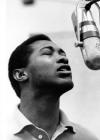
Fu rilasciata come bonus track del Greatest Hits del gruppo
A CHANGE IS GONNA COME
(continua)
(continua)
7/2/2016 - 21:54
An' He Never Said a Mumberlin’ Word
anonimo
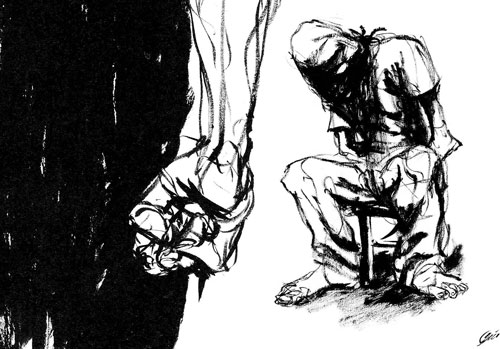
Una poesia di Wisława Szymborska, nella raccolta Koniec i początek del 1993.
TORTURY
Nic się nie zmieniło.
Ciało jest bolesne,
jeść musi i oddychać powietrzem i spać,
ma cienką skórę, a tuż pod nią krew,
ma spory zasób zębów i paznokci,
kości jego łamliwe, stawy rozciągliwe.
W torturach jest to wszystko brane pod uwagę.
Nic się nie zmieniło.
Ciało drży, jak drżało
przed założeniem Rzymu i po założeniu.
w dwudziestym wieku przed i po Chrystusie,
tortury są, jak były, zmalała tylko ziemia
i cokolwiek się dzieje, to tak jak za ścianą.
Nic się nie zmieniło.
Przybyło tylko ludzi,
obok starych przewinień zjawiły się nowe,
rzeczywiste, wmówione, chwilowe i żadne,
ale krzyk, jakim ciało za nie odpowiada,
był, jest i będzie krzykiem niewinności,
podług odwiecznej skali i rejestru.
Nic się nie zmieniło.
Chyba tylko maniery, ceremonie, tańce.
Ruch rąk osłaniających głowę
pozostał... (continua)
TORTURY
Nic się nie zmieniło.
Ciało jest bolesne,
jeść musi i oddychać powietrzem i spać,
ma cienką skórę, a tuż pod nią krew,
ma spory zasób zębów i paznokci,
kości jego łamliwe, stawy rozciągliwe.
W torturach jest to wszystko brane pod uwagę.
Nic się nie zmieniło.
Ciało drży, jak drżało
przed założeniem Rzymu i po założeniu.
w dwudziestym wieku przed i po Chrystusie,
tortury są, jak były, zmalała tylko ziemia
i cokolwiek się dzieje, to tak jak za ścianą.
Nic się nie zmieniło.
Przybyło tylko ludzi,
obok starych przewinień zjawiły się nowe,
rzeczywiste, wmówione, chwilowe i żadne,
ale krzyk, jakim ciało za nie odpowiada,
był, jest i będzie krzykiem niewinności,
podług odwiecznej skali i rejestru.
Nic się nie zmieniło.
Chyba tylko maniery, ceremonie, tańce.
Ruch rąk osłaniających głowę
pozostał... (continua)
Bernart Bartleby 7/2/2016 - 21:38
Forgive Them Father
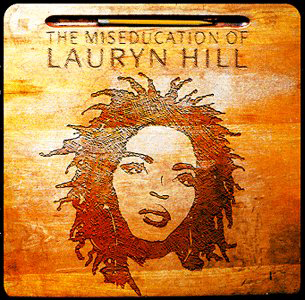
(1998)
feat. Shelly Thunder
dall'album "The Miseducation of Lauryn Hill", il primo e sinora unico album solista della cantante dei Fugees
ispirata a "Concrete Jungle" di Bob Marley
Una canzone zeppa di citazioni bibliche, sul perdonare i traditori pronti a calpestarti per raggiungere i loro sporchi fini, con riferimenti diretti alle battaglie per i diritti civili e contro l'Apartheid in Sudafrica.
feat. Shelly Thunder
dall'album "The Miseducation of Lauryn Hill", il primo e sinora unico album solista della cantante dei Fugees
ispirata a "Concrete Jungle" di Bob Marley
Una canzone zeppa di citazioni bibliche, sul perdonare i traditori pronti a calpestarti per raggiungere i loro sporchi fini, con riferimenti diretti alle battaglie per i diritti civili e contro l'Apartheid in Sudafrica.
Forgive us our trespasses as we forgive those that trespass against us
(continua)
(continua)
7/2/2016 - 19:58
Ho continuato la mia strada

C'ero anch'io alla Mandria e sono uno di quelli che ha suonato e cantato su quel palco, con il gruppo di Siracusa, per "sostituire" i contestati (non tanto loro quanto l'idea degli organizzatori di pagare qualcuno per esibirsi) Angelo Branduardi (quasi sconosciuto al tempo) e Napoli Centrale (appena costituito, Pino Daniele ha collaborato 2 anni dopo).
Non mi era più capitato di cantare questa canzone.
Ieri, a casa di vecchi amici non scout, raccontando dei tempi andati e della route, abbiamo trovato su youtube i remake di Paolo e di un gruppo del Molise https://www.youtube.com/watch?v=reyt1qdlSx4 .
Mi sono commosso e sono riaffiorati tutti i ricordi di quei giorni e di quella serata, nitidi, precisi, intensi.
E' .... bellissimo
Non mi era più capitato di cantare questa canzone.
Ieri, a casa di vecchi amici non scout, raccontando dei tempi andati e della route, abbiamo trovato su youtube i remake di Paolo e di un gruppo del Molise https://www.youtube.com/watch?v=reyt1qdlSx4 .
Mi sono commosso e sono riaffiorati tutti i ricordi di quei giorni e di quella serata, nitidi, precisi, intensi.
E' .... bellissimo
Giampiero Divotti 7/2/2016 - 10:00
Chant de l'Orapu
anonimo

E la musica por favor, dove estA?
(Cri Cri)
(Cri Cri)
Non ce està, non hay el video Yutubos y no trovamos los espartitos, sucede a vueltas purtroppos! [RV]
7/2/2016 - 02:11
×
![]()


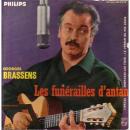

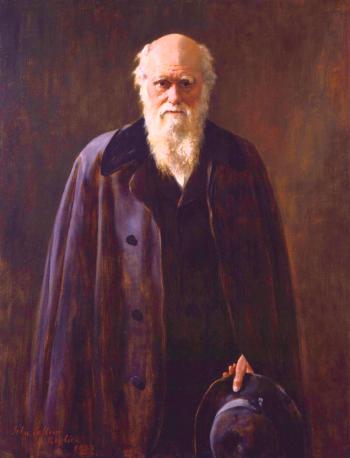


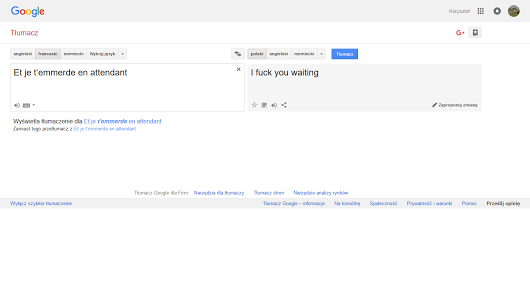



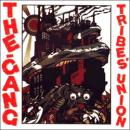
Chanson française – Le Géant Hiver – Till et Nelle (1) – Marco Valdo M.I. – 2016
Ulenspiegel le Gueux – 26
Opéra-récit en multiples épisodes, tiré du roman de Charles De Coster : La Légende et les aventures héroïques, joyeuses et glorieuses d’Ulenspiegel et de Lamme Goedzak au Pays de Flandres et ailleurs (1867).
(Ulenspiegel – I, LXXXIV)
Cette numérotation particulière : (Ulenspiegel – I, I), signifie très exactement ceci :
Ulenspiegel : La Légende et les aventures héroïques, joyeuses et glorieuses d’Ulenspiegel et de Lamme Goedzak au Pays de Flandres et ailleurs, dans le texte de l’édition de 1867.
Le premier chiffre romain correspond au numéro du Livre – le roman comporte 5 livres et le deuxième chiffre romain renvoie au chapitre d’où a été tirée la chanson. Ainsi, on peut – si le cœur vous en dit – retrouver le texte originel et plein de détails... (continua)